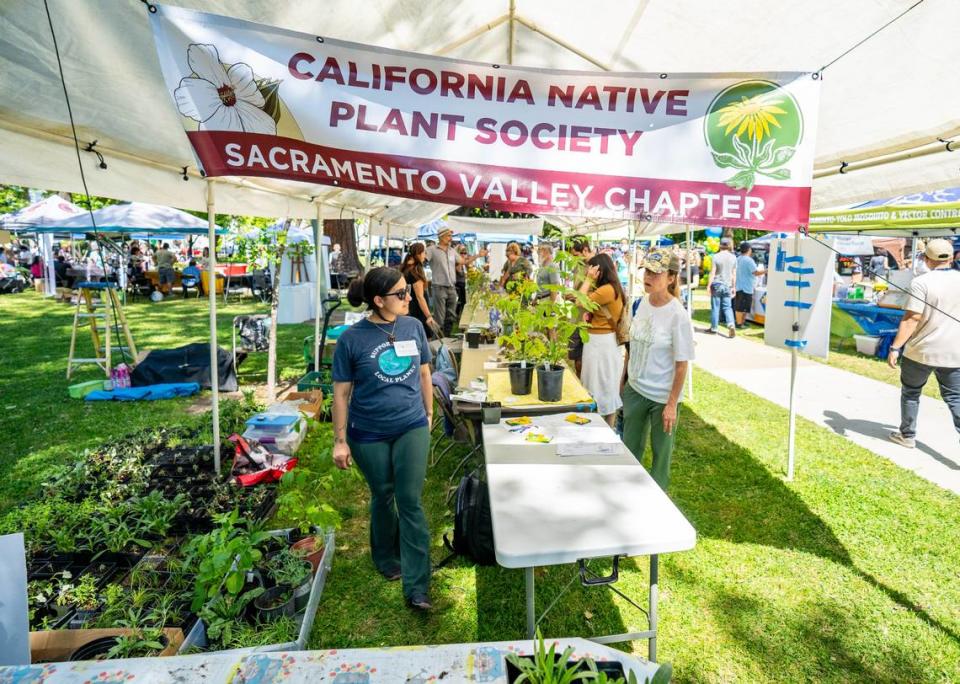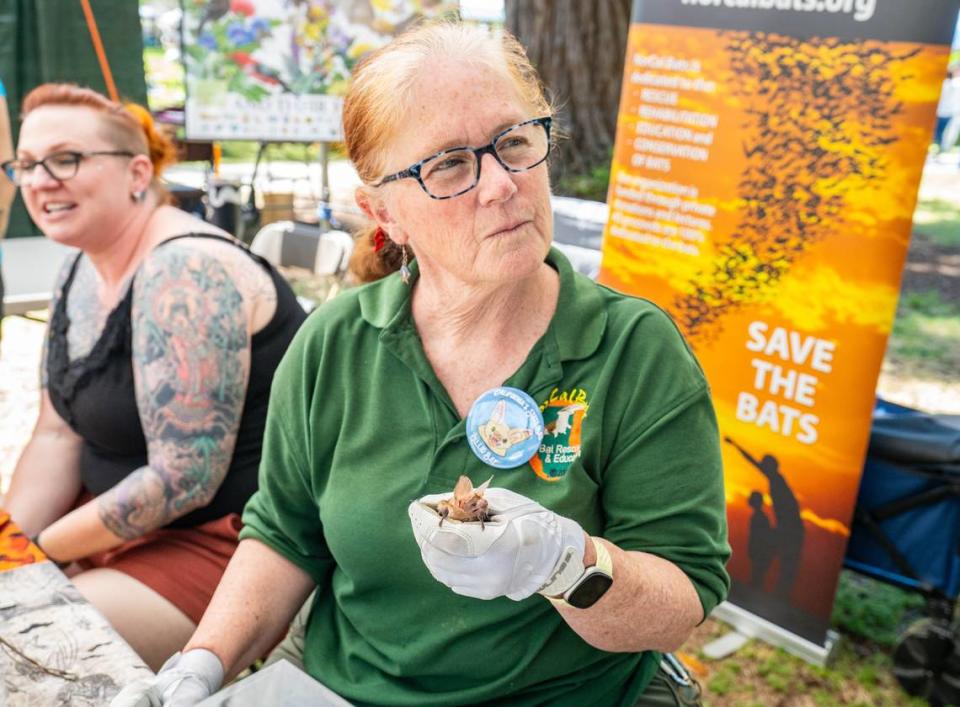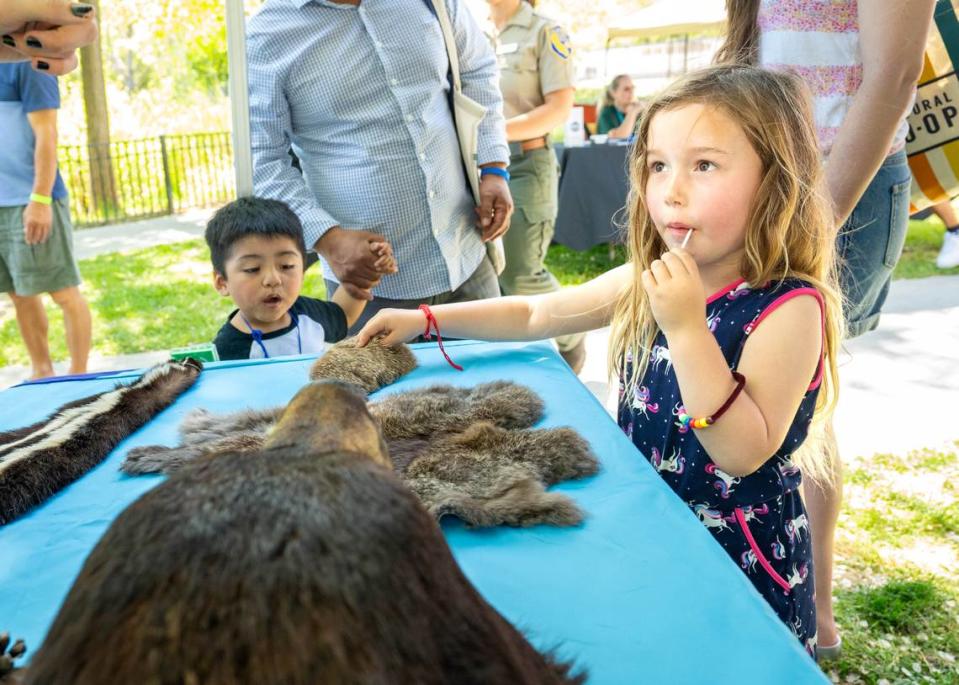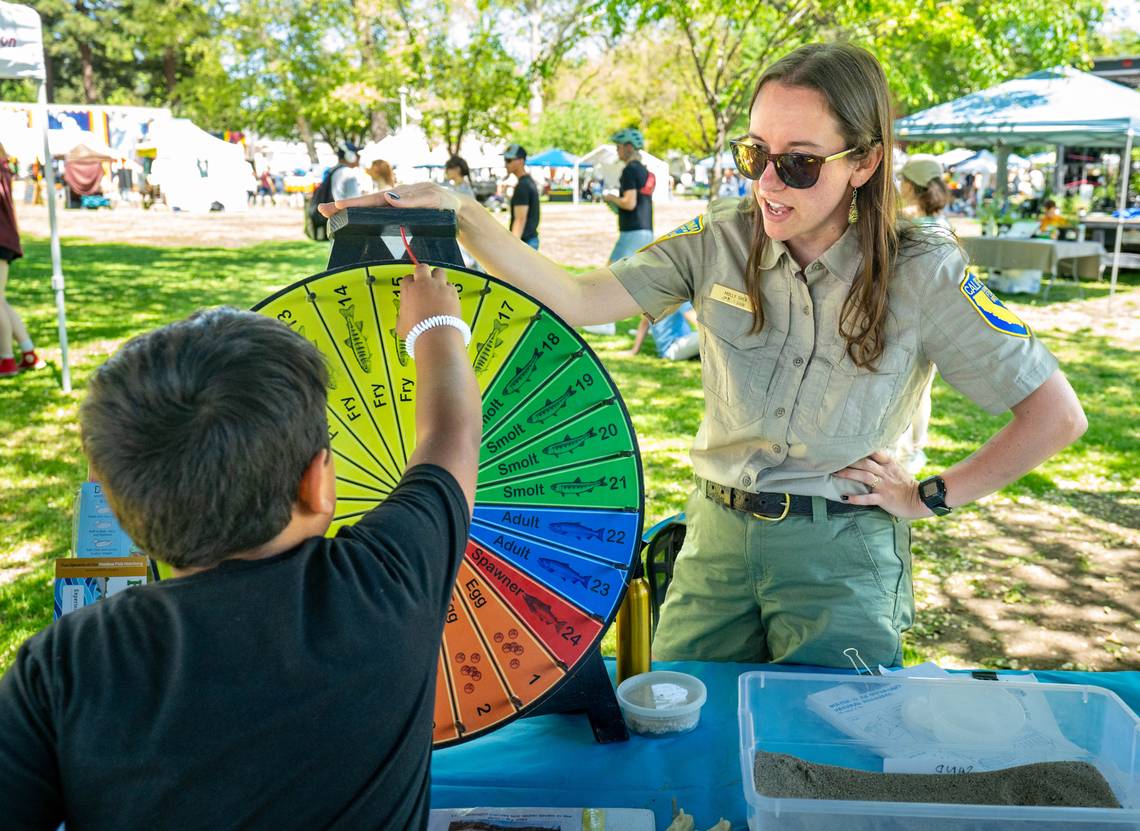“Oh man, you’ve just been eaten by catfish,” California Department of Fish and Wildlife interpreter Molly Shea told 6-year-old Sebastian Alvarez after he spun the salmon wheel of survival for a tenth time on Sunday afternoon.
Each spin, and the number it landed on, represented another possibility in a salmon’s “tough life,” explained Shea. Salmon lay up to 5,000 eggs, with only about two surviving their entire life cycle.
As Sebastian found out with each spin, salmon can be eaten by predators, caught by a fisherman or stuck in an irrigation pump. Humans add to the already high odds stacked against these fish.
Sebastian was among the hundreds of children who spent their Sunday learning about the human affects on wildlife and the environment as part of Sacramento’s annual Earth Day celebration.
The celebration, the largest of its kind in the capital region, commemorates the original 1970 Earth Day and reminds people that citizen action can result in environmental change, said Michael O’Sullivan, a board member for the Environmental Council of Sacramento.
Earth Day is celebrated worldwide every April 22.

“I hope that (people) take away something that they can do to preserve the environment, to get outside and to save the Earth,” O’Sullivan said. ‘That’s what it’s all about.”
Sunday’s event, held at Southside Park, offered more than 100 exhibitors and vendors, ranging from electric vehicle test rides and composting stations to live bat showings and plant nurseries.
A few feet away from the CDFW booth, the city of Sacramento handed out free organic waste bins to recycle food scraps or food-soiled paper. The goal was to encourage participation in new state regulations that require Californians to recycle organic waste.
Recycled organics taken to the city’s composting facility are turned into potting soil for residents, said Leonardo Falcon, a commercial compliance analyst for the city. This lowers the city’s carbon footprint and encourages more vegetation in the region.
“Using this way, which is organics recycling, your organics are actually turned into a different product,” Falcon said.
Across the park, Corky Quirk, director of Northern California Bats, was teaching people of all ages to appreciate what she calls misunderstood animals. Using gloves, Quirk grabbed bats from her display cases to provide people an up-close look at the flying mammals.
“There’s a lot of lack of knowledge,” said Quirk, whose colleagues proclaim as the bat lady of Northern California. “People are fearful sometimes of what we don’t understand or have never seen.”




Quirk said bats are significant to the California ecosystem given the state’s reliance on agriculture. U.S. bats primarily eat flying insects, serving as a form of pest control and reducing the need for chemical pesticides.
“Organic farmers love to have bats,” Quirk said. “Backyard gardens love to have bats.”
Quirk also showed off a pallid bat, newest California’s state symbol. Last year, Gov. Gavin Newsom signed Senate Bill 732, making the pallid bat, Antrozous pallidus, the official state bat.
“It’s our bat,” Quirk said. “It’s another way we can help people connect with nature and learn.”


